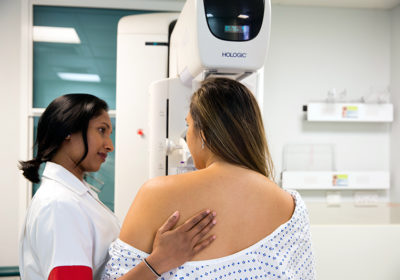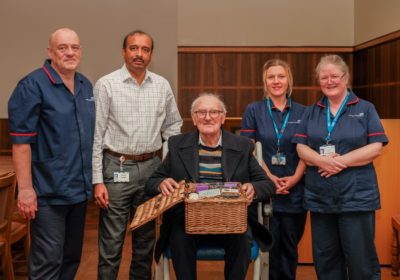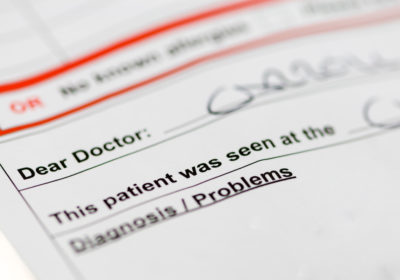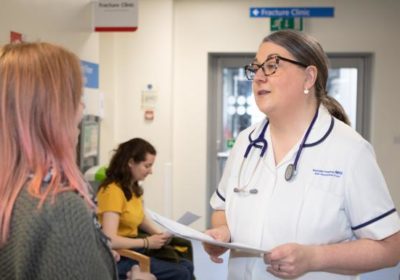The wait for test results has also been highlighted as a major issue by respondents to an online survey and focus groups.
Healthwatch South Tyneside commissioned MMC Research and Marketing Ltd to conduct the research to obtain patients’ experiences of waiting times.
There were 181 adult respondents to the ten-minute online survey and 11 patients took part in two focus groups held last November and in January this year. Of them, 49 had experienced recent treatment or were on a waiting list for a procedure.
Of the 49, forty per cent were told they would have to wait at least seven months, a fifth between one and six months and 18 per cent within one month. Patients were split on acceptability of the waiting times they were told to expect, with a third (32 per cent) thinking they were reasonable and a third (34 per cent) feeling they were unreasonable.
While the research found a high level of goodwill towards the NHS, with patients understanding that stretched budgets and under-resourced departments were impacting on waiting times, patience was running out for the need to return to pre-Covid levels.
During the wait for procedures, when patients are likely to have multiple contact touchpoints with different departments, many respondents gave examples of reception staff lacking in empathy, not listening to their concerns, and even showing rudeness.
Feedback on waiting time experiences in the focus groups was mixed. Some participants had good experiences, for instance being referred to a physio and offered an appointment the next day, while others reported long waits including one of six months for a first physio consultation and another for a diagnosis for neurodivergence-related problems.
Meanwhile patients waiting for minor procedures such as steroid injections said they often felt they were assigned the lowest priority, even when in significant pain.
One respondent said: “It takes a lot for a man to pick up a phone to have a prostate test anyway, so for them to pick up the phone and ask for it to (then) be told we’re not actually doing them… one, that’s wrong information and two, that – again – is not acceptable when you’re talking about rehabilitation for people’s health. That shouldn’t happen.”
Frustrations with waiting times also included the anxious wait for test results. Patients are not generally contacted by the GP surgery when their test results come in and are expected to wait until their next appointment or phone themselves to check if the results have arrived.
One of the focus group attendees said it felt disrespectful to be told to “keep phoning” for test results that weren’t back yet when she was busy with work and every phone call takes a long time to get through.
Another who was made to feel like they were wasting the GP receptionist’s time when chasing test results said: “I’ve called up asking for the results and I’ve almost got the vibe that someone is irritated at me for not taking the silence as an answer. As if that was an answer at all.”
While one participant was shocked to be mistakenly referred for STD tests when the real issue was an ulcer, only finding this out after calling the GP practice back.
The overall conclusion of the research was that although some patients were content with their experience of waiting times and waiting experience for NHS services, the majority felt their needs were not currently met in terms of waiting times and communication.
Healthwatch has published a report in response to the research findings making a series of recommendations to primary care commissioners and practice managers:
- Improve receptionist/care navigator training to include more empathy towards patients and a higher level of customer service even when phone lines are busy, and staff are under pressure.
- Improve support available whilst waiting for referrals and treatment to help with mental and physical health.
- Communicate more with those experiencing waiting times for procedures with updates on their position/likely time on the waiting list.
- Set expectations for communicating to patients while they are waiting for test results, referrals and treatment with regular updates to reassure them and offer any additional support while they wait.
- Ensure all patient communications are written in easy-to-understand plain English with a minimum level of technical health language.
 Arthur McKean, Interim Chair of Healthwatch South Tyneside, (pictured) said: “The emotional impact of long waiting times for procedures can be significant and casts a shadow over expectations and perceptions of the whole NHS.
Arthur McKean, Interim Chair of Healthwatch South Tyneside, (pictured) said: “The emotional impact of long waiting times for procedures can be significant and casts a shadow over expectations and perceptions of the whole NHS.
“Patients can become resigned to not getting quick treatment, referrals or reassurance, which means they are more likely to delay getting medical attention next time they need it until their symptoms are much worse.
“But positive receptionist contact provides a ‘halo’ over the rest of the NHS experience and patients are likely to be more understanding if they have a lengthy wait for an appointment, test result or procedure.
“When patients feel involved in their own care and feel the NHS is invested in their personal wellbeing through communicating effectively and regularly, they are more likely to stay in a positive mindset and also be more accepting of longer waiting times and other challenges accessing physical and mental health services.”
The full report can be downloaded here.
If you would like to tell us about your experiences of GP access, or any other aspect of health and social care services in South Tyneside, contact us at info@healthwatchsouthtyneside.co.uk or call 0191 489 7952.






